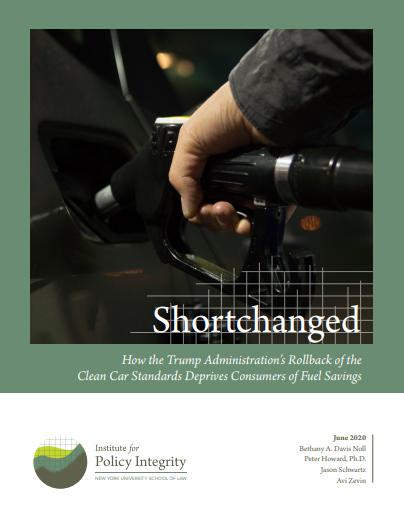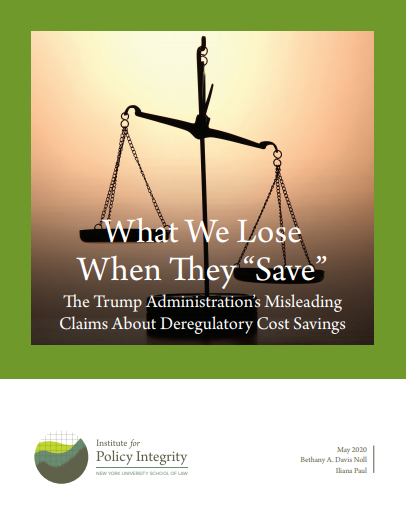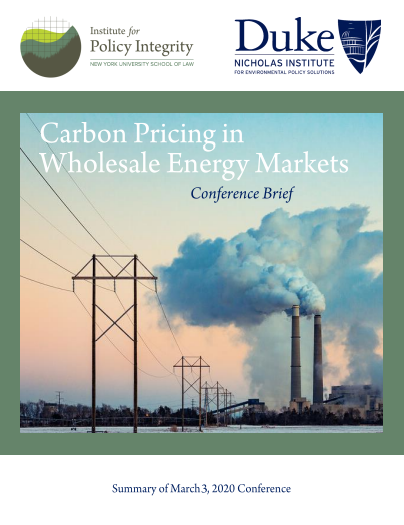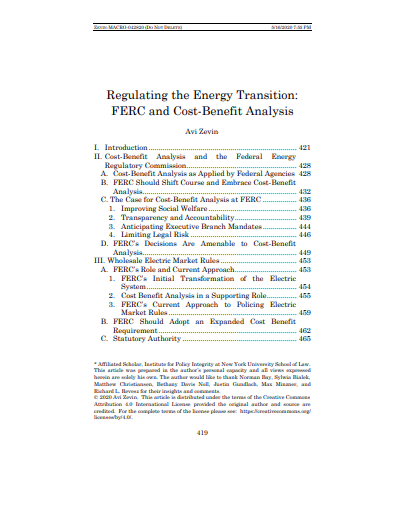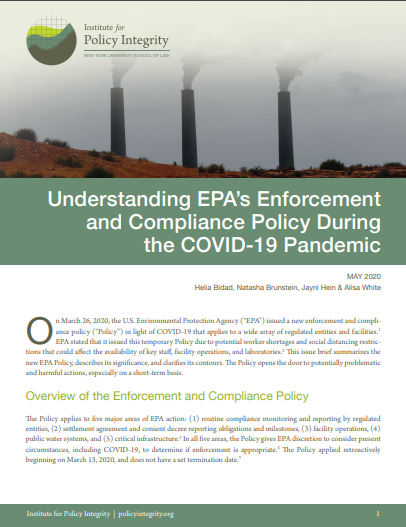The Institute for Policy Integrity produces a variety of publications. Our research reports develop in-depth research on our core issues, while our policy briefs and issue briefs provide focused analysis on more timely or particular topics. Our academic articles and working papers offer original scholarly research and analysis from established experts as well as fresh new voices.
Latest Publications
-
Shortchanged: How the Trump Administration’s Rollback of the Clean Car Standards Deprives Consumers of Fuel Savings
The Trump administration recently replaced the Obama administration’s strongest climate policy, the Clean Car Standards, with a significantly weaker rule. We explain how EPA and NHTSA, to justify the rollback, rely on an analytical gimmick that contravenes decades of agency practice across administrations as well as the principles of basic economics.
-
What We Lose When They “Save”
The Administration’s Misleading Claims About Deregulatory Cost Savings
The Trump administration regularly boasts about the cost savings of rolling back regulations, focusing on industry profits without considering significant negative impacts. This policy brief address and counters the administration's cost savings claims and demonstrates that they should not be taken at face value.
-
Carbon Pricing in Wholesale Energy Markets
Conference Brief
Policy Integrity and the Nicholas Institute for Environmental Policy Solutions at Duke University convened a conference on March 3, 2020, to discuss current, and potential future, approaches to carbon pricing in wholesale markets. This brief highlights some of the major points of discussion and suggests open questions for future study.
-
Regulating the Energy Transition
FERC and Cost-Benefit Analysis
This article, published in the Columbia Journal of Environmental Law, argues that, FERC’s management of this transition would be significantly enhanced if it embraced cost-benefit analysis—including accounting for important indirect costs and benefits such as the effect on climate change—to guide its decisionmaking. Changing course and adopting cost-benefit analysis will allow FERC to manage the energy transition while maximizing social welfare, enhancing transparency and accountability, and mitigating legal and political risk
-
Understanding EPA’s Enforcement and Compliance Policy During the COVID-19 Pandemic
This issue brief summarizes EPA's enforcement and compliance policy in light of COVID-19, describing its significance and clarifying its contours. The policy opens the door to potentially problematic and harmful actions, especially on a short-term basis.

